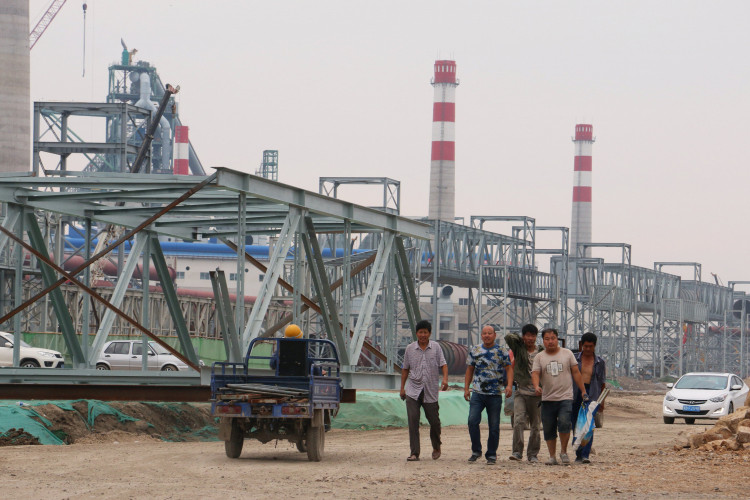Hebei province, the steel production capital of China, imposes new emissions standards for all of its steel mills which will take its full effect by 2020. This is part of the local government's move to carry out Beijing's intensifying efforts to reduce air pollution in the country, a document detailing the newest industry guidelines indicated.
As stated in the latest policy document cited over by Reuters, the provincial environmental protection agency will specifically mandate newly built steel mills to comply the ultra-low emissions restriction guidelines starting next year. Meanwhile, existing plants are given two years to meet the new strict industry standards.
Low Emission Campaign
As further noted in the official text, by October 2020, all steel firms should be able to register particulate matter emissions well within 10 micrograms per cubic meter, sulfur dioxide (which is one of the main components in forming acid rain) should be maintained under 35 micrograms, and nitrogen oxides (which help causes adverse health effects) must fall within 50 micrograms.
This new environmental standards set by the Hebei province outdo the current state limits, which only range from 40, 180, and 300 μg, respectively.
According to the South China Morning Post, the province has been on the front line of China's on-going war on pollution. Now on its fifth year, it looks like Hebei province will soon be removed from the list of country's smoggiest cities.
One of its aims is to bring down the level of concentrations of hazardous floating particles (PM2.5) from 65 micrograms last year, to 55 micrograms by 2020.
As part of its ever-intensifying drive to alleviate the effects of pollution on the environment, the government opted to shut down or suspended firms caught violating the provisions. It also issues policies which aim to curb coal consumption in the country while at the same time, imposing restrictions on traffic.
Moreover, the Xi Jinping administration has set up reward and punishment systems that encourage local governments to act upon the national directives on saving the environment.
For what it's worth, it looks like Beijing has been quite effective in its drive to preserve mother earth. According to a previous Business Times report, China has seen a significant decline in its carbon footprint in the recent years.
Citing the data provided over by Nature Geoscience, coal is one of the critical factors elevating the pollution level in China during its economic boom.
However, in its decision to move away from conventional energy sources such as the one mentioned above to alternatives like LNG (liquid natural gas) to fire up its industries, the Xi Jinping government managed to reverse the situation to the country and the world's benefit.





